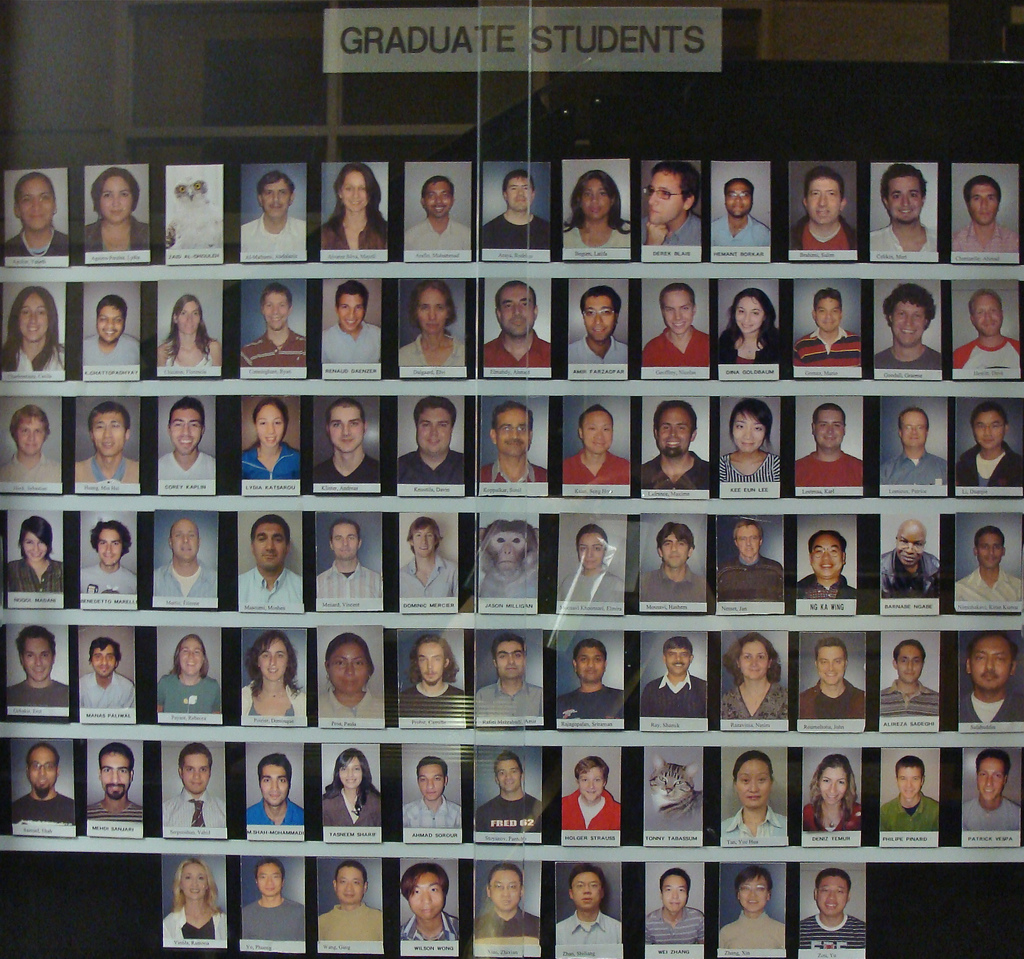
APAGS hopes the odds are ever in your favor. (Source: “The Hunger Games” by duncan on Flickr. Some rights reserved.)
For many of us, Match Day is reminiscent of the Hunger Games. We are entering into a lottery for our future, and that is certainly terrifying for many. For clinical, counseling, and school folks, this is the culmination of the better part of a year spent on writing applications, mock interviews, anxiously awaiting interview invitations, traveling the country, Skyping, ranking, and then waiting for the all important email on Match Day.
Today, many students will be thrilled to match; even more thrilled if they match to a top choice! Celebrations kick in and plans for next year quickly begin. For far too many others, the experience will be much different. A heartbreaking email revealing they have not matched and an invitation to participate in yet another round of applications, interviews, and a matching process.
To those who matched this year, congratulations! For those of you who did not, we have some support resources, and we stand in solidarity with you. Whatever your outcome was today, I wish you the best in your next steps.
What We Know Today
Here’s the data APPIC released this morning about the 2016-2017 internship cohort:
- 3,725 applicants participated in the match (i.e., submitted final rankings). 3,648 of these students were from accredited doctoral programs.
- 3,235 applicants matched in Phase I; an 87% overall match rate.
- 84% of applicants who matched got one of their top three choices.
- There were more available positions (3,800) in the match than applicants who submitted final rankings. At the end of today’s Phase I, 490 applicants remain unmatched, 565 internship positions remain unfilled, and 263 of those are accredited.
For individuals who did not match today in Phase I, this last point provides hope — but may be of little solace to lessen the heartbreak of not matching. The implications of this imbalance are significant. It hits us deeply in our pockets, as an extra academic year could mean additional unplanned debt. Another year in school could mean delaying other major life events such as getting married, starting a family, or buying a house. While we certainly could look at the “silver lining” of not matching — such as a focused year to complete dissertation and gain additional, possibly specialized, clinical training — the pain and the crisis remain.
An Upswing Since 2011
Since the 2011-2012 match, APPIC has reported a yearly increase in match rates. However, it is important to understand that APPIC only provides data on students who participate in their match, and today’s data is limited to Phase I. For a complete picture of students from accredited doctoral programs who need — and who receive — internships (particularly accredited ones), we turn to data we’ve requested from APA’s Commission on Accreditation. Here’s the information we have:
| Internship year |
Match rate of students from APA accredited doc programs to any internship |
Match rate of students from APA-accredited doc programs to APA accredited internships |
| 2011-2012 |
83.1% |
51.9% |
| 2012-2013 |
88.8% |
54.6 |
| 2013-2014 |
90.1% |
57.7% |
| 2014-2015 |
93.0% |
60.1% |
| 2015-2016 |
95.3% |
68.4% |
For current interns, the overall match rate looks good, with 95.3% of students from an APA accredited program matching to any internship. At the same time, we continue to see a sizable gap in students from APA accredited programs who match to APA accredited internships; a mere 68.4% match rate. We are optimistic that the match rates for accredited internships will continue to climb for the 2016-2017 internship cohort. Today’s data from APPIC shows that 72.9% of all ranking applicants from APA and CPA accredited programs matched to accredited internships (this number may look different when CoA releases their data for the 2016-2017 internship year).
Our Advocacy Efforts
For APAGS members, committee and staff, the internship crisis continues to be a grave problem. It is a crisis that remains on the top of the agenda for your APAGS leaders and other advocates within the discipline. The internship stimulus package has supported the growth of internships, and programs continue to reach out for guidance in the development of accredited internships. Champions are tirelessly advocating on behalf of students for the reimbursement of intern services through Medicaid, which could substantially change the status of this crisis along with greatly serving the public. Still, there is much work to be done.
APAGS has been working tirelessly over the past years on advocacy efforts related to the internship crisis. Here are the areas where we have focused particular energy:
- The $3 million internship stimulus package has helped to create 157.5 accredited internship positions at 29 different sites as of January 2016.
- We produced a video about the internship crisis, highlighting student experiences and the devastation of not matching.
- A panel at the 2014 Annual Convention brought together students and other stakeholders to discuss the internship crisis and to explore creative approaches to end the crisis, resulting in an academic paper. Work on these ideas is ongoing.
- We have been meeting with members of various psychology training councils to prioritize accredited internship development in places with untapped potential for growth; for example, university-based psychology training clinics, community colleges, and school districts.
- We provide information to applicants to graduate school on how to find a program that best meets their needs, and how to interpret publicly available data about programs, including match rates.
Where Do We Go From Here?
Unlike The Hunger Games where there is only one winner, Match Day brings a winning outcome to many participants. While the odds are improving, it’s up to each of us to change the nature of this game.
- Please encourage your program to become active in advocating for the development of an internship program.
- Talk with your practicum sites about the value of hosting an accredited internship.
- Share the APAGS video about the internship crisis with everyone you know, along with the administration at your school.
- Engage your state psychological association to become involved in the advocacy efforts for medicaid reimbursement.
- Share your experiences with us through a guest blog post.
We would love to hear your internship story and your advocacy efforts (additional ideas here). The more we can share ideas, collaborate on solutions, and raise a loud collective voice, the sooner we can end this crisis.








